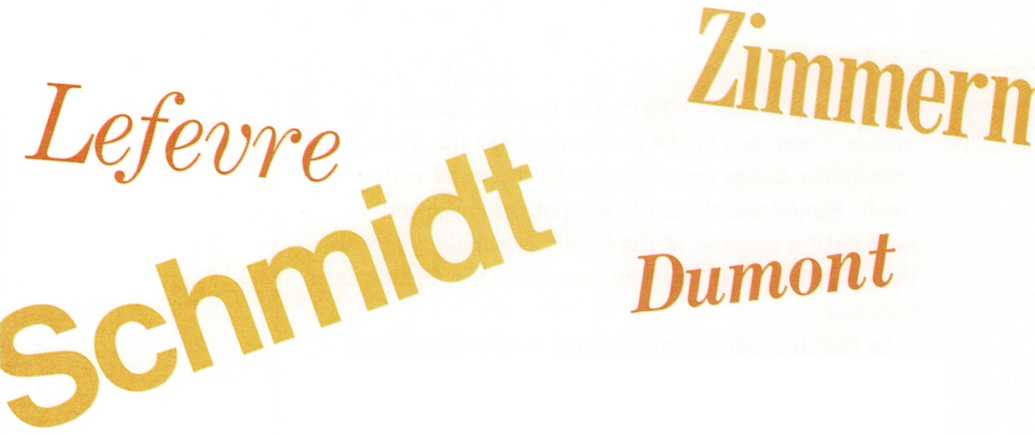
Family names
Is your last name—your family name—Smith? Then, long ago, you had
an ancestor who made things out of metal. Is your family name Fields?
Then, long ago, you had an ancestor who lived near fields. Is your
family name Nelson? Then, long ago, you had an ancestor whose father’s
name was Nels.
People didn’t always have last names. So why do we have them now? There
are many different reasons. In Europe, for example, last names only
became common about 800 years ago. Kings and other nobles took last
names to set themselves apart from the common people. It was their way
of saying, “I’m better than you are.” It wasn’t long, however, before
everyone began to take last names.
Every family name is a word that means something. All family names
started out the same way. Long ago the names were words that told what
kind of work a man did, or where he lived, or what his father’s name
was. And sometimes they were simply names of things.
The German family name Zimmerman means “a carpenter.” The French
family name Dumont means “of the mountain.” The Russian family name
Ivanoff means “of Ivan.” The Italian family name Fiore means
“flower.”
Family names have the same meaning in any language. Of course, they are
not spelled the same. And they do not sound the same. But the meaning is
the same. Smith, which means “metalworker,” is the most common name in
English. It is also a common name in other languages. If you are German,
it is Schmidt. If you are French, it is Lefevre. If you are Italian,
it is Farraro.
In most parts of the world, when a woman marries, she takes her
husband’s last name. When children are born, they take their father’s
last name. Everyone in the family has the same last name. That’s why
last names are called family names.
But in Iceland, everyone in a family has a different last name.
Icelandic people take their father’s first name as their last name. Boys
add “son” to their father’s name. Girls add “dottir.” And when girls
marry, they keep their last names.
Suppose Jon Ingolfsson marries a girl named Thora Haldorsdottir. If they
have a son, his last name will be Jonsson. If they have a daughter, her
last name will be Jonsdottir.
Family names aren’t always last names. In China, a boy who is born
into the Wan family, and named Lung, is called Wan Lung. In China, the
family name is first.


